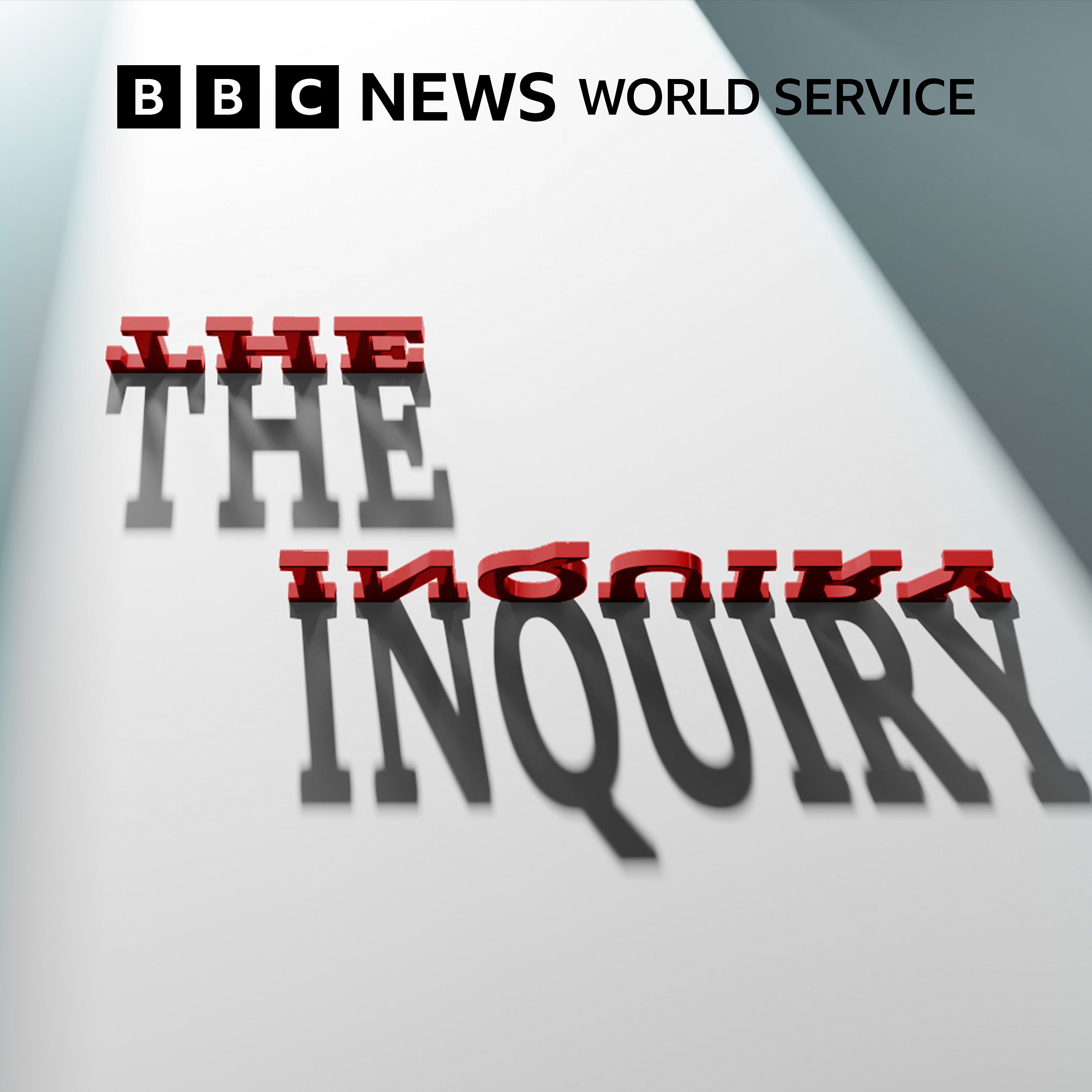

The Inquiry
BBC World Service
The Inquiry gets beyond the headlines to explore the trends, forces and ideas shaping the world.
Episodes
Mentioned books

Jul 29, 2024 • 23min
Can the statues of Easter Island survive climate change?
Explore the majestic Moai statues of Easter Island and their cultural significance to the Rapa Nui people. Discover the environmental challenges these ancient icons face, from climate change to rising sea levels. Learn about innovative preservation techniques being implemented and the collaborative efforts with UNESCO to protect this rich heritage. The podcast highlights the urgent need for conservation amid increasing tourism and ecological threats, emphasizing local indigenous involvement in safeguarding these treasured monuments.

Jul 22, 2024 • 23min
What can a rusting warship tell us about tensions in the South China Sea?
Exploring the tensions and risks in the South China Sea, focusing on the Philippines' claims to disputed territories and the presence of a rusting warship, the Sierra Madre. The ongoing confrontations with China over maritime rights and international law implications are discussed, reflecting the broader geopolitical significance of the region for global trade and security.

Jul 16, 2024 • 23min
How worried should humans be about bird flu?
Exploring the transmission of bird flu from birds to dairy cattle in the US, posing concerns for human infection. Virologists track the development of the virus since the 1990s, with over 400 human deaths linked to it worldwide. Experts discuss the potential for further transmission to humans and the risks of viruses adapting between different species.

Jul 10, 2024 • 23min
Can the Democrats replace Biden?
Discussion on challenges faced by Joe Biden in his reelection bid, including concerns about his age and performance. Exploring the possibility of Democrats replacing him with Kamala Harris as the nominee and the potential implications. Highlights the risks and unity issues of changing candidates so close to the election, all while Republicans observe the situation to their advantage.

19 snips
Jul 4, 2024 • 23min
What will a Hungarian presidency mean for the EU?
Exploring Hungary's upcoming EU Presidency and its divergent views on climate policy and Ukraine, amidst the rise of far-right parties in the European Parliament. How Hungary's leadership may impact European politics and alliances, especially with concerns about its cooperation with Russia and Viktor Orbán's agenda.

Jun 27, 2024 • 23min
Do we have enough energy to power AI?
Artificial Intelligence's energy demands are explored, posing challenges for sustainability. AI's impact spans healthcare, climate change, and global challenges. The rise in living standards globally increases electricity demand, with AI influencing energy grids. Renewable energy for AI centers and regulations may be key for sustainability.

10 snips
Jun 20, 2024 • 23min
Why is Kenya getting involved in Haiti?
Kenya is leading a UN-backed security force in Haiti due to armed gang violence, while facing internal security issues and economic challenges. The podcast delves into Kenya's historical involvement in peacekeeping missions, its global partnerships, and the complexities of being in Haiti. It also explores the historical US-Haiti relationship and Kenya's humanitarian efforts, highlighting the implications of this international mission.

Jun 13, 2024 • 23min
What does a designer handbag say about South Korean politics?
A hidden camera recording shows a man gifting an expensive handbag to the South Korean First Lady, sparking a political storm. The incident raised bribery and corruption concerns, affecting the country's parliamentary elections. The fallout included societal divisions and the First Lady's retreat from public life.

Jun 6, 2024 • 23min
Is Georgia turning its back on Europe?
On the 28th of May, in a small country on the easternmost reaches of Europe, a new law came into effect.For the vast majority of people around the world, this new ruling, in a nation of fewer than 4 million inhabitants, went largely unnoticed.However, for many of the citizens of Georgia it marked a setback, throwing off course the country’s prospects of joining the European Union and aligning it more closely with Moscow.This week on The Inquiry we’re asking, ‘Is Georgia turning its back on Europe?’Contributors:Megi Kartsivadze, DPhil student, Oxford School of Global and Area Studies, University of Oxford, and an invited lecturer at the University of Tbilisi, GeorgiaProfessor Stephen Jones, Director of the Program on Georgian Studies at the Davis Center at Harvard University, Cambridge, MADr. Lia Tsuladze, Executive Director of the Center for Social Sciences and an Associate Professor of Sociology at Tbilisi State University, GeorgiaMaia Nikoladze, Assistant Director in the GeoEconomics Center, Atlantic Council, Washington DCProduction team: Presenter: Tanya Beckett
Producer: Lorna Reader
Technical Producer: Craig Boardman
Researcher: Matt Toulson
Production Coordinators: Ellie Dover & Tim Fernley
Editor: Tara McDermottImage Credit: David Mdzinarishvili/Epa-Efe/Rex/Shutterstock

May 30, 2024 • 23min
What can the world’s biggest iceberg tell us?
Discover the journey of the world's largest iceberg, A23a, from its 'calving' to its recent refloat. Explore its impact on the ecological environment, acting as a fertilizer and carbon sink for the ocean. Learn about the implications of melting glaciers on marine life, global sea levels, and the fragile future of ice ecosystems.


